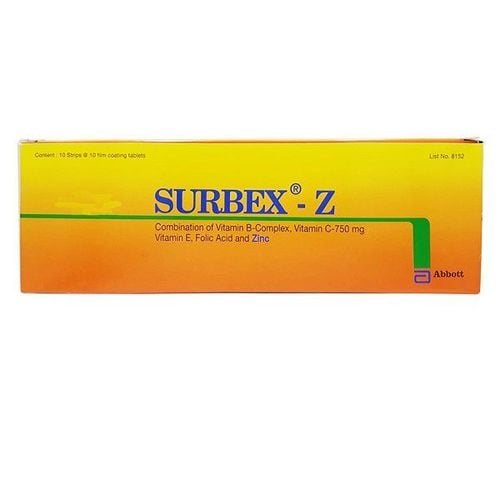Zinc interacts with key hormones that promote bone growth and height. However, many parents still do not fully understand the role of zinc and the proper methods for supplementation to enhance height, leading to deficiencies or excesses that negatively impact a child's development.
1. Does zinc supplementation help increase height?
As is well known, zinc is an essential mineral for the human body. Zinc participates in the formation of enzymes, which act as catalysts for many reactions in the body. It enhances absorption, promotes protein synthesis, participates in cell division, and increases appetite.
In children, zinc deficiency can lead to stunted height development, disrupted bone growth, delayed puberty, and appetite loss due to altered taste perception. If this condition persists, it may result in malnutrition, which over time affects overall growth and development.
Moreover, zinc interacts with important hormones involved in the bone growth process—essential factors for children's height increase. Additionally, zinc may enhance the efficacy of vitamin D in bone metabolism by stimulating DNA synthesis in bone cells.
When discussing bones and height, many individuals often think solely of calcium or type II collagen, failing to recognize that zinc is also a crucial component of bone structure. If parents provide adequate calcium without considering zinc, children may experience stunted growth and limited height potential.
Zinc supplementation enhances the body's nutrient absorption capabilities, increases appetite, encouraging children to eat more and receive a diverse range of nutrients, which is beneficial for health and facilitates rapid height enhancement. A lack of zinc impedes cell division, subsequently inhibiting height growth and adversely affecting overall health.
Zinc activates aminoacyl-tRNA synthetase in bone-forming cells and is involved in cellular protein synthesis while inhibiting bone resorption. Consequently, zinc effectively preserves bone mass and increases bone density, contributing to stronger bones.
To supplement zinc for height enhancement in children, parents should administer zinc on an empty stomach to avoid gastrointestinal disturbances. Zinc should not be taken concurrently with other minerals such as calcium, iron, or magnesium, and should be supplemented at a distance from the administration of other vitamins.

2. How does zinc interact with growth hormones in children?
Zinc is an integral component of more than 300 enzymes within the body. It serves as an indispensable catalyst for RNA polymerase, playing a vital role in DNA replication and protein synthesis. Therefore, zinc interacts with growth hormones in children by promoting cell division, thereby facilitating growth. Consequently, a deficiency in zinc hampers normal cell division, significantly affecting growth and development in children, resulting in undernutrition and stunted growth.
Additionally, zinc participates in the synthesis and regulation of hypothalamic hormone functions, such as growth hormone (GH) and insulin-like growth factor 1 (IGF-I), which are crucial growth hormones in children. Numerous studies have demonstrated that zinc promotes children's height growth via IGF-I.
In terms of immunity, zinc supports the development and maintenance of an effective immune system, essential for protecting the body against diseases and promoting wound healing. Zinc deficiency reduces the development and functionality of most immune cells, including T cells, B cells, and macrophages. In zinc-deficient mice, splenic and thymic hypoplasia, along with a decrease in immunoglobulin production, including IgA, IgM, and IgG, has been observed.
Reduced macrophage activation and impaired phagocytosis have also been noted in both experimental animals and children with zinc deficiency. Therefore, zinc deficiency compromises immune function, increasing the risk of infections, which in turn diminishes growth and development in children, heightening the risk of malnutrition and mortality.

3. Nutritional Micronutrients That Support Height Growth in Children
In addition to zinc, there are numerous other important micronutrients that can assist children in height development, including:
Vitamin A, iodine, iron
Vitamin A is an essential micronutrient necessary for vision, cellular differentiation, immune system function, and the process of bone cell formation. Iodine, on the other hand, is a crucial trace element needed to prevent goiter and cognitive developmental delays. During developmental phases, the body relies significantly on iron. Iron is vital for the transportation of oxygen to body cells, with rich sources including red meat, seafood, legumes, dark green vegetables, and fortified iron products.
Calcium
Calcium-rich foods comprise dairy products such as milk and cheese, as well as dark green vegetables, soy products, and fish. Recently, many fortified calcium products have emerged in the market, including bread, biscuits, orange juice, and instant cereals. Calcium is regarded as one of the most essential trace elements for bone development and height increase in children. Daily calcium requirements for children under six months are 300 mg, 400 mg for those aged 6-11 months, 500 mg for ages 1-2 years, and 600 mg for ages 3-5 years. Pregnant and lactating women have the highest calcium needs at 1,200 mg and 1,300 mg, respectively.
Children aged 3 to 5 years should consume four servings of dairy and dairy products daily. One serving contains 100 mg of calcium, found in 15 g of cheese or 100 ml of yogurt (one yogurt container) or 200 ml of liquid milk (two small glasses of milk).
Vitamin D
In reality, very few foods in nature are rich in vitamin D. Certain cod liver oils, especially from fatty fish, along with the liver and fats from marine mammals, and eggs from pasture-raised hens, contain vitamin D. For instance, 100 g of carp contains 24.7 mcg of vitamin D, while 100 g of salmon contains 10.88 mcg, and the yolk of chicken eggs contains 2.88 mcg per 100 g.
Vitamin D enhances the body's ability to absorb calcium, thereby strengthening bones and supporting optimal growth. Consequently, it is imperative for children to engage in outdoor activities and consume foods rich in vitamin D and calcium.
In addition to promoting height growth, these micronutrients also enhance immunity in undernourished, stunted children.
Aside from supplementing with micronutrients, ensuring adequate sleep and maintaining regular physical activity are crucial for promoting metabolic processes in the body and enhancing children's height development.
Children's sleep requirements are outlined as follows:
- For infants from birth to 3 months, a total of 14-17 hours of sleep per day is necessary.
- Infants from 3-11 months require 12-17 hours of sleep.
- Toddlers aged 1-2 years need 11-14 hours of sleep daily.
- Children aged 3-5 years should sleep for 10-13 hours each day.
- Children aged 6-13 years require 9-11 hours of sleep daily.
- Adolescents aged 14-17 should sleep for 8-10 hours per day.
- Adults aged 18-64 need 7-9 hours of sleep.
- Older adults aged 65 and above should sleep for 7-8 hours daily.
School-aged children should engage in at least one hour of physical exercise or sports each day. Exercise during adulthood also confers benefits. In addition to helping maintain overall health, physical activity can reduce the risk of osteoporosis, a condition where bones become weaker or more brittle, resulting in diminished bone density, which can lead to reduced height. To mitigate this risk, activities such as walking, playing tennis, or practicing yoga several times a week should be encouraged.
In summary, zinc impacts children's height through various mechanisms, such as enhancing appetite, resulting in increased nutrient intake for physical development, and participating in the synthesization and regulation of hypothalamic hormone functions, including growth hormone (GH) and insulin-like growth factor 1 (IGF-I), which are growth-promoting hormones that stimulate height increase in children.
Beyond zinc, parents should also ensure their children receive other vital vitamins and minerals such as lysine, chromium, and B vitamins, which aid in enhancing appetite, improving immune function, and boosting resistance to minor illnesses.
Stay updated by frequently visiting Vinmec.com for useful information to care for your child and family.
To arrange an appointment, please call HOTLINE or make your reservation directly HERE. You may also download the MyVinmec app to schedule appointments faster and manage your reservations more conveniently.
To arrange an appointment, please call HOTLINE or make your reservation directly HERE. You may also download the MyVinmec app to schedule appointments faster and manage your reservations more conveniently.








